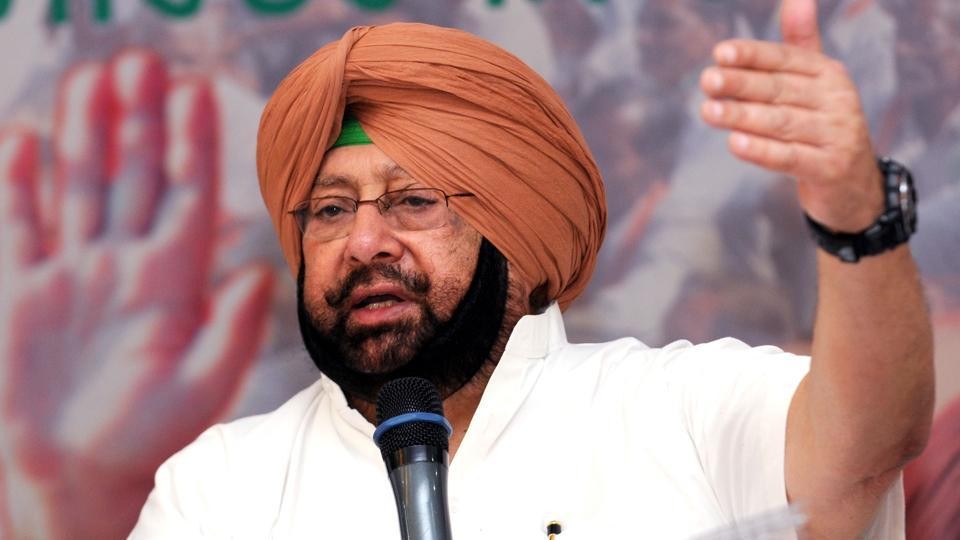
It took Randhir Kaur 15 years to come to terms with her husband’s death due to a stroke. But her son Harpreet Singh’s suicide last March brought her back to square one. A small-time farmer, Harpreet consumed poison on 31 March, 2018, after being unable to clear a loan of Rs 5 lakh. The family stays in Rureke Kalan village of Barnala district in Punjab, which is frequently rocked by suicides of debt-ridden farmers.
Randhir and her daughter-in-law Mandeep now do tailoring jobs to run their home. “Harpreet had taken a loan of Rs 1.5 lakh from the bank and Rs 3.5 lakh from a moneylender. The latter really harassed him, repeatedly asking him for the money. Harpreet couldn’t take it after a point…” Randhir trailed off. Harpreet even sold a part of his nearly three-acre land in the village to try and cough up money to repay the loan, but it wasn’t enough.
The burden of a loan and a stigma of being unable to repay is one of the main reasons behind the 14,000 farmer suicides the state has seen from 2000 to 2015.
Token measure or genuine attempt?
Jasvir Kaur has been selling milk to make ends meet since her husband committed suicide in 2017. Arjun Sharma and Sukhcharan Preet
There are around 10.93 lakh farmers across Punjab, of which 2.04 lakh (18.7 percent) are marginal farmers, 1.83 lakh (16.7 percent) small farmers, and 7.06 lakh (64.6 percent) farmers have more than two hectares.
Chief Minister Captain Amarinder Singh claimed before the 2017 Assembly polls that the Congress would wipe out farmer suicides after it came to power; in late 2017, after taking charge, the government rolled out the loan waiver scheme. The scheme, however, focussed only on loans taken from banks and cooperative societies and thus didn't benefit those farmers who'd borrowed from local moneylenders.
It provided relief to marginal farmers (those having less than 2.5 acres of land) and small farmers (those having 2.5 acres or up to 5 acres) for loans up to Rs 2 lakh availed from scheduled commercial banks and cooperative credit institutions (including urban cooperative banks and regional rural banks, collectively called as “lending institutions”).
However, as recently as March, with an eye on the upcoming elections, the state government rolled out an extension to the existing scheme; it now includes farm labourers and landless farming members of Primary Cooperative Agriculture Service Societies to provide relief to nearly 2.85 lakh, of which 70 percent are Dalits.
Has the scheme helped?
Jasvir Kaur, however, doesn’t understand the political slugfest over farmer suicides; her paramount worry is her two children and their future, after her husband Ajaib Singh, a farmer, committed suicide on 26 July, 2017. A resident of Dhaula village of Barnala district, she has been selling milk to make ends meet.
Ajaib owned a two-acre plot in the village and had taken a loan of Rs 3 lakh from a bank and Rs 2 lakh from a local moneylender. “He sold off one acre to try and repay the loan, but it wasn’t enough. After the humiliation the moneylender subjected him to, Ajaib hanged himself,” she said, adding that the government has done nothing to help her and her two sons and the family continues to struggle.
She isn’t the only one; none of the state government’s initiatives seem to have improved the situation on the ground.
Harpreet Singh committed suicide in 2018, leaving behind his wife and mother. Arjun Sharma and Sukhcharan Preet
Harpreet Singh committed suicide in 2018, leaving behind his mother and wife. Arjun Sharma and Sukhcharan Preet
According to Bharatiya Kisan Union (Ugrahan), a farmers’ welfare organisation, at least 1,100 farmers and farm labourers in Punjab committed suicide since the Congress came to power. State president of the Union Joginder Singh said the data has been compiled based on reports published in print media.
Joginder said the prime reason behind these suicides was farmers unable to face the embarrassment due to their inability to clear the loans. “Crop failure and erratic rainfall, among other reasons, make it difficult for farmers to repay the money they borrowed.”
Political potshots
Former cabinet minister and senior Shiromani Akali Dal leader Bikram Singh Majithia was quick to blame the Congress government for failing to live up to its promise of a complete loan waiver to farmers, which he alleged was among the reasons that forced them to take the drastic step.
The chief minister, on the other hand, trained his guns at the Centre, saying states alone can’t do everything and need the central government’s help. He was speaking during the launch of the third phase of his government’s loan waiver scheme at Anandpur Sahib on 24 January.
“My government’s scheme is not enough to alleviate the sufferings of all farmers in the state. Because loans amount to more than what the government can waive off, farmers’ plight has remained acute,” he added.
So what should be done?
Senior agriculture economist, professor Gian Singh, however, said loan waiver was not a permanent solution to farmers’ woes. According to him, a foolproof solution would be when they either don’t need to take loans in the first place or, if at all they must, they are able to repay it with ease.
“Unless farmers in Punjab are given an alternative to wheat and paddy, this problem won’t end,” he added, saying cultivation of crops that take to the state’s climatic conditions will be a long-term solution.


.jpeg)

